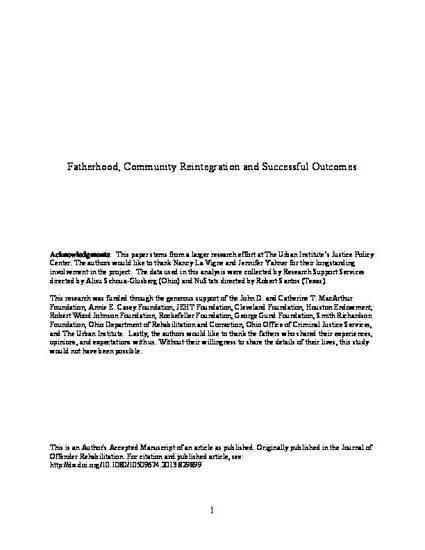
Article
Fatherhood, Community Reintegration, and Successful Outcomes
Journal of Offender Rehabilitation
(2013)
Abstract
Prior research indicates that assuming family roles, such as parent or spouse, can aid in the transition from prison to the community and has been linked to positive outcomes after a period of confinement. Using data from a longitudinal study of men returning to the community after incarceration, this study examines how the relationship between fathers and their children immediately after release may impact aspects of fathers’ lives that are important to a successful reentry transition in the first year, such as employment, abstinence from substance abuse, and mental health. Analyses show that fathers who lived with children before incarceration and had regular contact with their children during their incarceration were more likely to be involved with their children after release. Moreover, fathers who were
more involved with their children in the first few months after release, when interviewed again at eight months out, worked more hours per week, were less likely to use illicit drugs, and were less likely to commit crime, get arrested, or violate conditions of their supervision.
Keywords
- Incarceration,
- Fathers,
- Desistance,
- Substance Use
Disciplines
Publication Date
2013
DOI
10.1080/10509674.2013.829899
Citation Information
Visher, Christy A., Nicholas W. Bakken, and Whitney DeCamp. (2013). Fatherhood, Community Reintegration, and Successful Outcomes. Journal of Offender Rehabilitation, 52, 451-469. doi:10.1080/10509674.2013.829899
